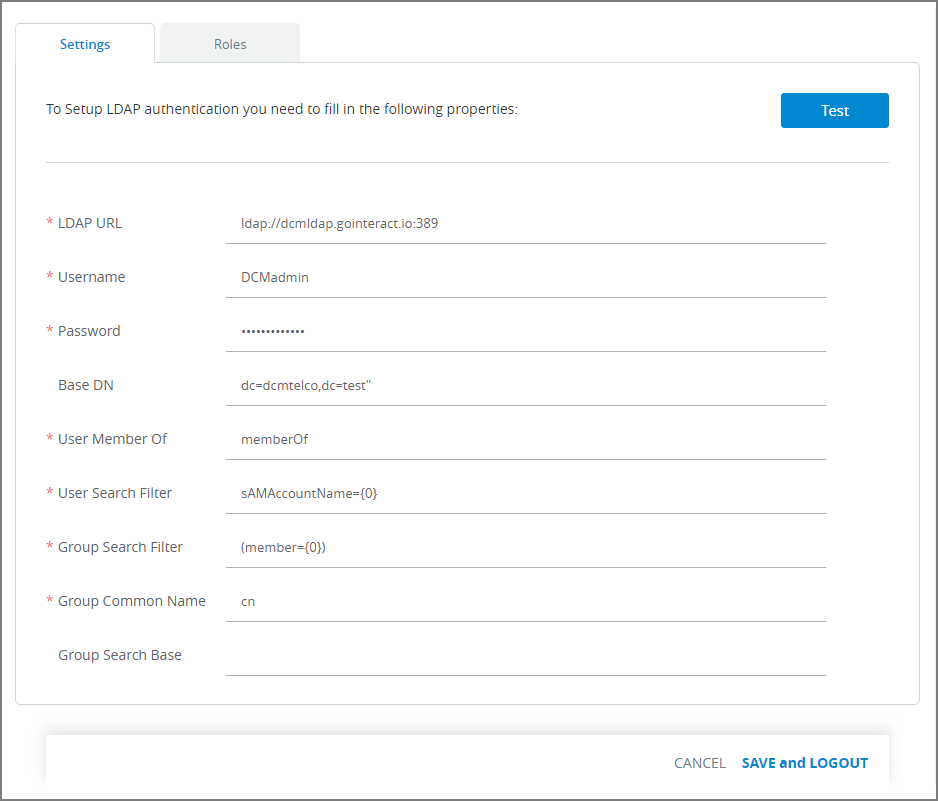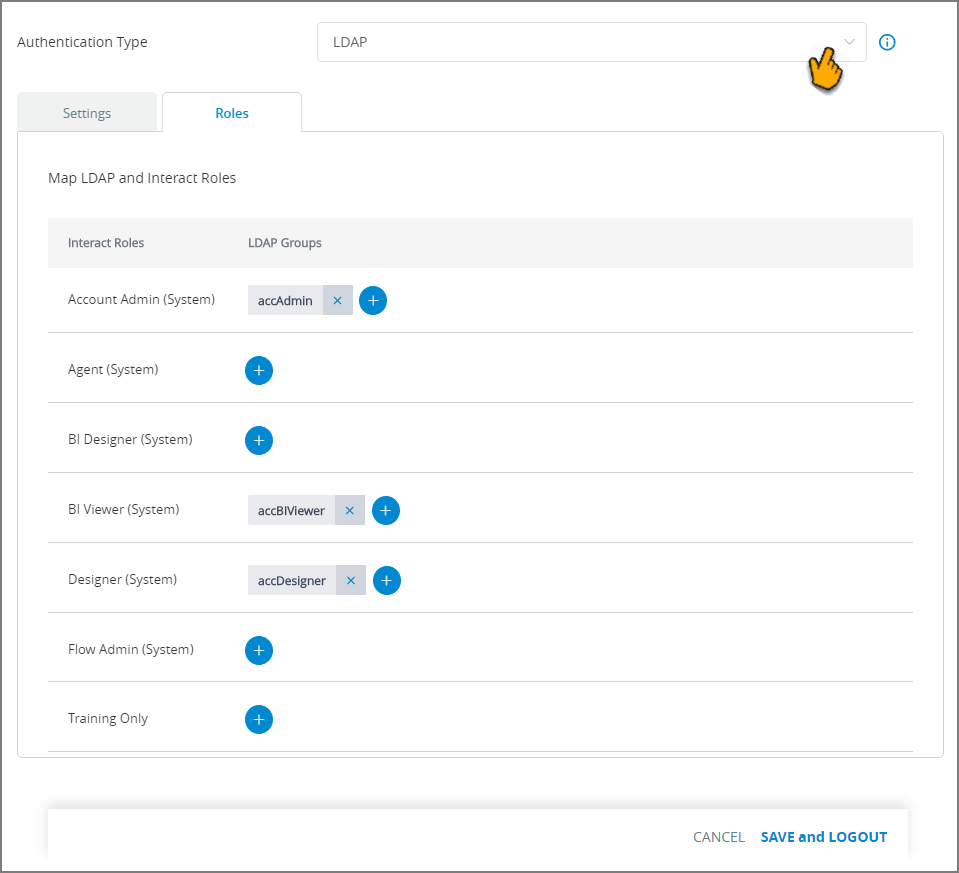Configuring LDAP Authentication
X‑Platform supports authenticating users of your account and applications using LDAP.
Note
LDAP is only supported only on X‑Platform versions earlier than Release 2023.4.
Lightweight Directory Access Protocol (LDAP) is an industry-standard data communications protocol which enables fast data lookup from a configured LDAP server. LDAP can store as well as retrieve information via a hierarchical structure directory information tree.
You can also map any X‑Platform Role to an LDAP Group.
Accessing LDAP Settings
You access all LDAP parameters from the Authentication Settings page, either:
globally for your account, or
from a specific application.
Configuring LDAP Settings
From the Authentication Type dropdown, select LDAP. The LDAP Settings panel is displayed:

Enter your LDAP connection parameters into the appropriate fields of the Settings panel.
Setting Name
Description
LDAP URL
The URL for the LDAP server. It may be separated to host, port, and schema. (e.g.,
ldap://10.90.17.46:389)Username
The name of the Admin user for LDAP connectivity. This user is never exposed to the X‑Platform Server.
Password
The password of the Admin user for LDAP connectivity. When the application starts, the value of this property is encrypted by the server. The password is thus never exposed to the X‑Platform Server.
Base DN
The LDAP root from which all searches are started. (e.g.,
dc=devdomain, dc=develop,dc=com)User Member Of
This property is used to identify Group memberships of users (e.g.,
memberOf).User Search Filter
This property is used to bind users during authentication. To allow users to login using different properties, a comma separated list of values can be used. (e.g.,
uid, sAMAccountName).Group Search Filter
This property is used to bind Groups during authentication. To allow Group members to login using different properties, a comma separated list of values can be used.
Group Common Name
Identifies a Group name. (e.g.,
cn)Group Search Base
The LDAP root from which all Group searches are started.
Click Test at the upper right of the Settings panel. When your entries are valid, the message Connection Test Succeeded will be displayed.
Click the Roles tab. The LDAP Roles panel is displayed:

On this panel, you map one or more X‑Platform Roles to your pre-defined LDAP Groups. For each Role displayed, click the Plus
 icon and enter the name of one or more LDAP Groups that will be mapped to it.
icon and enter the name of one or more LDAP Groups that will be mapped to it.Both System and Custom Roles are supported.
To remove an existing Group, click on the X next to its name.
When you finish entering LDAP settings:
If you are configuring LDAP globally for the account, click Save and Logout. The settings will be saved, and you will be logged out of the account. You will need log in again in order for the new LDAP authentication method to become effective.
If you are configuring LDAP for a specific application, click Save. The new settings will be stored, and you can move to another panel to continue configuration as needed.